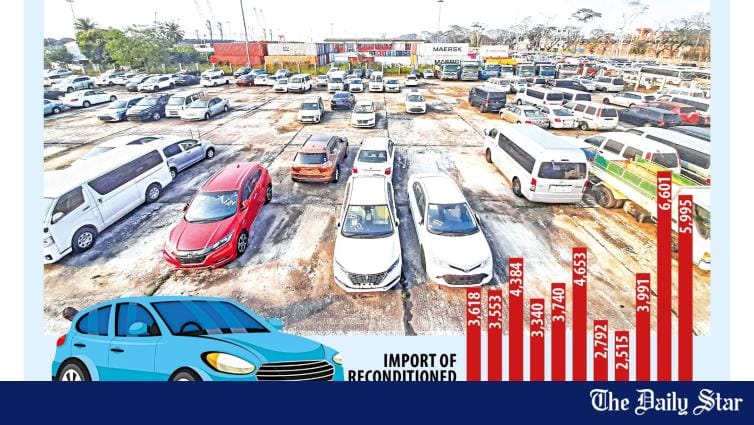


Both imports and sales of reconditioned cars in the US have declined, according to market insiders and data. This decline can be attributed to the increase in the price of US dollars and the prevailing macroeconomic vulnerability. Market experts suggest that the price increases have made reconditioned cars less affordable for consumers, leading to a decrease in both imports and sales. The decline in reconditioned car imports and sales highlights the impact of currency fluctuations and macroeconomic factors on the automotive industry [3c0832a3].
This decline in reconditioned car imports and sales comes at a time when the US economy is experiencing a deceleration in growth. The latest monthly report on US Merchant Wholesalers' Sales and Inventories in August 2023 indicates that the economy is decelerating to a moderate pace of growth. Adjusted for inflation, the report suggests that there are some cost pressures in the pipeline that could eventually place upward pressure on retail price inflation. The report highlights the importance of closely monitoring inflationary pressures and their impact on the economy [3381b8ba].
The decline in reconditioned car imports and sales also adds to the concerns about the impact of rising prices on consumer spending and the overall economy. The Consumer Price Index (CPI) in the US increased by 0.9% in April, which is the smallest gain since March 2022. While there has been a slowdown in inflation, economists caution that it remains elevated and will continue to be closely watched. The Federal Reserve has indicated that it expects the recent spike in prices to be transitory and has stated that it is prepared to take action if inflation persists. However, the persistence of elevated inflation remains a concern for the automotive industry and the overall economy [c92c958c].
The decline in reconditioned car imports and sales also reflects the broader challenges faced by the US in its efforts to reduce import dependence on countries like China. Recent research suggests that the US' reduction in import dependence on China is less than official figures indicate, as Chinese goods are being rerouted through Southeast Asia and other third countries. This highlights the challenge the US faces in its efforts to "de-risk" from China's economy. The decline in reconditioned car imports and sales further underscores the need for the US to diversify its sources of imports and reduce its vulnerability to macroeconomic factors [6d746e12].
Overall, the decline in reconditioned car imports and sales in the US can be attributed to the increase in the price of US dollars and the prevailing macroeconomic vulnerability. This decline highlights the impact of currency fluctuations and macroeconomic factors on the automotive industry. It also adds to the concerns about rising prices and import dependence, emphasizing the need for the US to closely monitor inflationary pressures and diversify its sources of imports [3c0832a3] [3381b8ba] [c92c958c] [6d746e12].